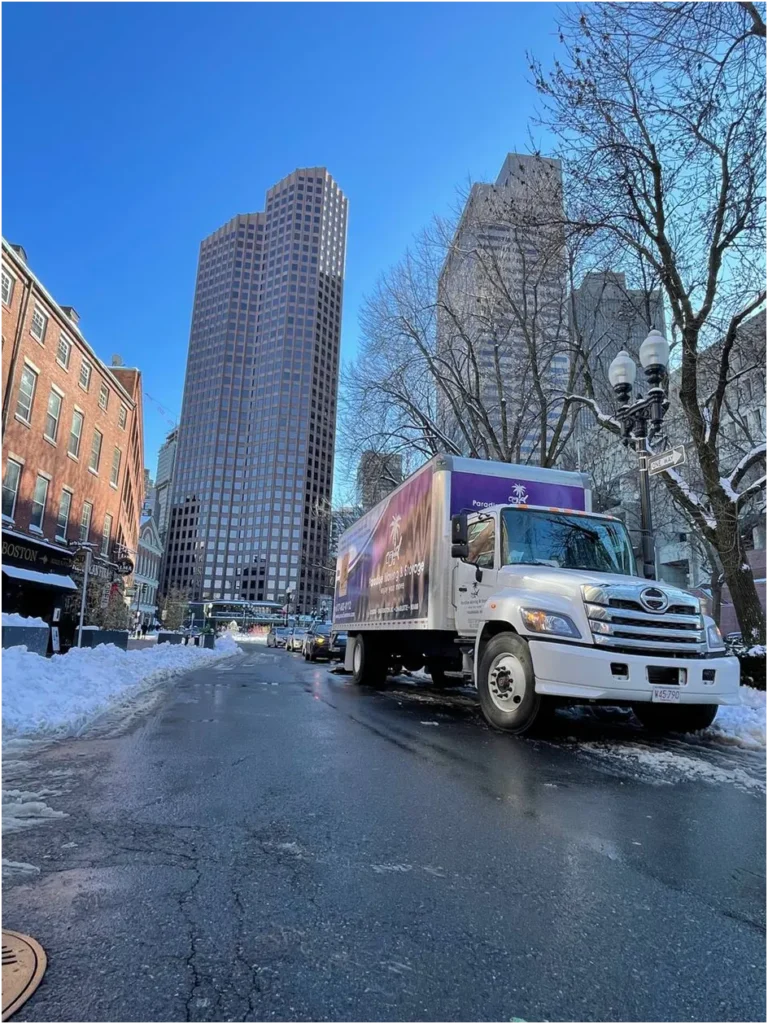Long-Distance Moving Services vs. DIY: Which Option is Best for You?

The long-distance move can inspire feelings of excitement, as well as being a little overwhelming. Whether moving for work, for personal reasons, or just for an adventure, the first thing you will often be faced with is the decision to hire long distance movers. Should you engage professional movers, put your faith in the long-distance moving company, or maybe DIY is more economical and flexible?
The article attempts to compare the merits and demerits of two long-distance moving options: those made through hiring professional movers versus those attempted on one’s own. Both options have their advantages and hurdles, and selecting between them is largely governed by factors such as time allotted to work with, money available, size of the move, and personal preference. By the end of this article, you will have all the info necessary to figure out what will work best for your long-distance move.
Long-distance moving process
Long-distance moving is a term used for those activities of moving household items over significant distances, sometimes even crossing state lines or going to a different region. The movers, who are professionals in such activities, undertake an array of services to assist in smoothing the entire process. These services usually include packing, loading, transportation, unloading, and in some situations, temporary warehousing or storage.
What professional movers offer:
- Experience and skills: Movers are skilled at handling items of every size and type, and also packing them securely and carrying them safely.
- Full-service options: Some moving companies give a full-service option through the entire moving procedure, from packing belongings to loading the van and unloading to unpacking.
- Transportation: Movers offer the storage and transportation necessary to make long-distance moves, namely, vehicles capable of carrying heavy loads and delicate items.
Can you believe — convenience does come with a price! Professionals are mostly charging on the basis of actual distance, together with the weight of the load and extra services provided. Nevertheless, hiring professional movers will greatly reduce the stress and time commitment of your next big move, especially for the more complex or larger moves.
DIY long-distance moving: What does it entail?
Interpersonal long-distance moving means the person is responsible for the entire moving process. Generally, the person is expected to rent a moving truck, pack and load it, and drive the truck to his/her destination while unloading after their arrival. More affordability, yet more liability, will confront the party.
What a DIY move includes:
- Truck rental: Rent an appropriately sized truck depending on how far your belongings will be moved. Paradise Moving & Storage usually rents out moving trucks for either short- or long-distance moving.
- Packing: Packing all your stuff yourself might take a lot of time and effort, and packing materials like boxes, tape, and packing peanuts will cost extra.
- Driving: The act itself of driving a moving truck over some series of long distances is tedious and comprises sitting out and thinking about all else that has not been done along the way: lunch, gas, motel.
- Loading and unloading: Furniture and boxes will still have to be handled by you and your friends or family helping. This can be quite straining and time-consuming if there are heavy or bulky pieces.
DIY moving will give you more control over your schedule and process, but it will also require additional time, effort, and responsibility. It may be effective for smaller loads, or you may feel up to the physical demand of long-distance driving.
Comparing the costs of long-distance moving vs. DIY
One main approach to deciding on long-distance movers versus a DIY move, however, is price. Both scenarios entail costs, and a perfect price would be dependent upon how large your move is, the distance involved, and your maximum willingness to spend.
Professional moving costs:
- Labor: Moving companies charge for labor, such as packing, loading, or unloading of your items. Most times, the charge is based on how long it takes for the mover to move.
- Transportation: Transportation charges are based on the truck rental and are part of the moving fee. Transportation charges increase as the movement distance increases.
- Insurance: Most moving businesses sell insurance coverage for damage during the move; as such, it adds to the cost.
- Packing & additional services: Some moving companies offer a packing service, which can be a pretty hefty charge for major moves.
DIY moving costs:
- Truck rental: Depending upon the size of the truck and the duration of the rental during long-distance moving, the cost for renting can vary. Expect to shell out anything from around $100 to $1,500, depending on the size of your truck and the distance covered.
- Fuel: Fuel expenses for long-distance drives can run anywhere from $100 to $500, depending on the distance traveled and the fuel efficiency of the truck.
- Insurance: Most probably, you would be asked to purchase truck insurance, which may cost anywhere from $20 to $40 per day, depending on the carrier and coverage.
- Food and lodging, miscellaneous: On long trips, meals and lodging would be other factors to consider if the trip spans many days.
- Damage liability: If something is damaged during moving, then you will be responsible to the fullest, except in case you had purchased additional insurance.
Let’s summarize
Consider time, flexibility, and risk when choosing between professional movers and DIY movers. Moving professionals save valuable time and physical labor for the client as far as packing, transportation, and unloading are concerned; however, a job move now is less flexible in terms of scheduling than a DIY move. A DIY option lets one decide when the move will take place and the exact route it will take; however, it requires a lot of time, effort, and responsibility. It is recommended to hire movers for heavy and complicated moves, for the safety and security of fragile items, and when a very restricted time is available for moving. On the other hand, if you want to move only a few items and are tight on cash, while preference is given to flexibility and control, then you have to opt for DIY moving. Consider what you need most before deciding what suits you better.
Conclusion
Depending on your circumstances, the choice between professional movers and a DIY move must be made. In the case of a big house, a short timeframe, or expensive items, movers could save money and reduce stress. Otherwise, if only a few belongings are being moved and flexibility or budget is a priority, DIY moves could be something to look into.
By taking into consideration the costs involved, time spent, and the level of risk, you may carefully choose the best approach that will ensure a smooth and cost-efficient move across the country.




